In the first episode of It's a Sin, the new Russell T. Davies drama set to debut on HBO Max on February 18, Ritchie Tozer is giddy. He's moved to London, he's enrolled in school, and he's ogling boys -- one long-haired figure in particular.
As these things go, Ritchie is still a touch shy about his sexuality: He's "bisexual, really 'cuz then you can fancy anyone in the room" and "there's double the choice." But it's still that one boy he ends up with at the end of the night.
The pair, played by Years & Years frontman Olly Alexander and Nathaniel Curtis (in the show, the long-haired Ash Mukherjee), are practically falling over one another. Their clothes peel off as they stumble through the halls. They writhe in a small dormitory-sized bed. Ritchie is on all fours now, his giddiness still apparent on his face.
"You need a bit of a wash," Ash says, pulling back. Ritchie is dismayed for a moment before confirming that he had taken a shower that very morning. "No, down there, your ass," Ash clarifies. "You need a good wash."



TOP: Olly Alexander, photographed by Jay Brooks. CENTER: Omari Douglas as Roscoe Babatunde; Callum Scott Howells as Colin Morris-Jones. BOTTOM: An AIDS demonstration; Lydia West as Jill Baxter. All production photos courtesy of Ben Blackall / HBO Max.
The moment is indicative of the show, of Davies's work in general: heady, funny, relatable, sexual, and frank. There have certainly been gay men who've been in Ritchie's position, feared being there, or knew someone who had been. There are many of those queerly universal moments throughout It's a Sin, which is the legendary writer's first series that centers AIDS. The characters are overly ambitious, often deeply flawed teenagers blundering through mistakes that are, frankly, relatable. The difference is they are doing it all against the backdrop of the catastrophic AIDS epidemic at a time when little was known about the disease.
"When I read Ritchie, I knew that I might never get the chance to play a part as good as this," says Alexander, who was first "scandalized" by Davies's most-known work, Queer as Folk, at age 14. Ritchie has moved from the suburban-like Isle of Wight to London to pursue dreams of being a famous actor. There he builds a cohort of friends, a chosen family really, that lives in the "Pink Palace," parties hard on the weekends, climbs the professional ladder during the week, and never leaves the house without a ceremonial "La."
Ritchie's "biggest driver is he wants to be someone. He wants to prove to the world that he has something to say," according to Alexander, who identified with that, having written his first song at age 10. It is a relatable driver and one he hurtles toward at all costs, many times ignoring the signs around him that something is incredibly wrong. And when forced to confront those signs, he is set on outsmarting them.
In a scene from the second episode in the five-part project set in the 1980s and early '90s, Ritchie lays out how preposterous the idea of a "gay cancer" is -- a term media outlets used for AIDS in the earliest years. He goes so far as to break the fourth wall, telling the viewer directly how insane the notion is that homosexuals are in danger, and that he specifically is. But episode after episode, the disease and its death toll continue to creep closer and closer.
It's a Sin has an ensemble cast, though. There are high-profile cameos in Stephen Fry as a high-earning government politician-cum-sugar daddy and Neil Patrick Harris as a partnered tailor, but the performances that carry the show are those of Alexander and a crop of newcomers like Curtis, Omari Douglas, Callum Scott Howells, and Lydia West. They all converge on the Pink Palace and are forced to lean on one another, many times in place of their biological families, as the never-ending tragedy of AIDS begins to impact their lives.



TOP: Omari Douglas, photographed by Jay Brooks. CENTER: Nathaniel Curtis as Ash Mukherjee; Neil Patrick Harris. BOTTOM: The queers come out to dance; the cast of It's a Sin. All production photos courtesy of Ben Blackall / HBO Max.
Just as ambitious as Ritchie is Roscoe Babatunde, who is forced to flee his home in the first episode in an instantly memorable scene that clearly lays out who he is as a person. After his sister encourages him to run before his homophobic father ships him off to Nigeria, instead of slinking off in the dead of the night, he puts on a skirt, middriff-baring crop top, heels, a bit of makeup, and a head wrap before stalking out the front door, defiantly, for the whole family to see.
"His fabulousness is his armor," Douglas, who plays Roscoe, explains of that "butterfly moment." The artifice was a loud "act of rebellion" and set a blueprint for the character's aspirational form of camp within his new group of friends. And those attributes were vital to the character. While some can be lulled into the belief that feminine men -- particularly fabulous gay Black men -- are a new phenomenon, it's "completely generational," Douglas confirms. To inform his portrayal of Roscoe he pulled from men like Michael Clark, Andy Polaris, Leee John, and Roy Brown, who helped to form London 1980s club culture.
"I don't want to shy away from his dynamic," the actor says of the camp of it all.
It's a Sin is a coming-of-age tale about a group of friends. Some of them make questionable, sometimes even reprehensible choices, they have a ton of sex, and they think they are too smart for their own good. AIDS becomes a darkening cloud that starts far-off, across the Atlantic Ocean, that gradually elbows its way square into the eye of the series.
Shame plays a more fatal role, doling out some incredibly emotional scenes that can wrench the tears out of the most apathetic of viewers. But in the hands of Davies, with his cast of deeply fallible characters, following in the footsteps of projects like Pose, Angels in America, The Normal Heart, and more, the series still feels fresh -- at times, joyful even.
"That's what Russell does so well," Alexander says. "[He creates] human beings; they do terrible things as well as being great people. They're human." Humans that you will fall in love with -- and mourn parting from.
A version of this story first appeared in Out's 2021 Hollywood Issue. Jake Borelli is featured on the cover alongside Ryan O'Connell and Alexandra Grey. It is the first print issue under the editorial direction of editor-in-chief David Artavia. The issue is out on newsstands on March 3, 2021. To get your own copy directly, support queer media and subscribe -- or download yours for Amazon, Kindle, Nook, or Apple News +.
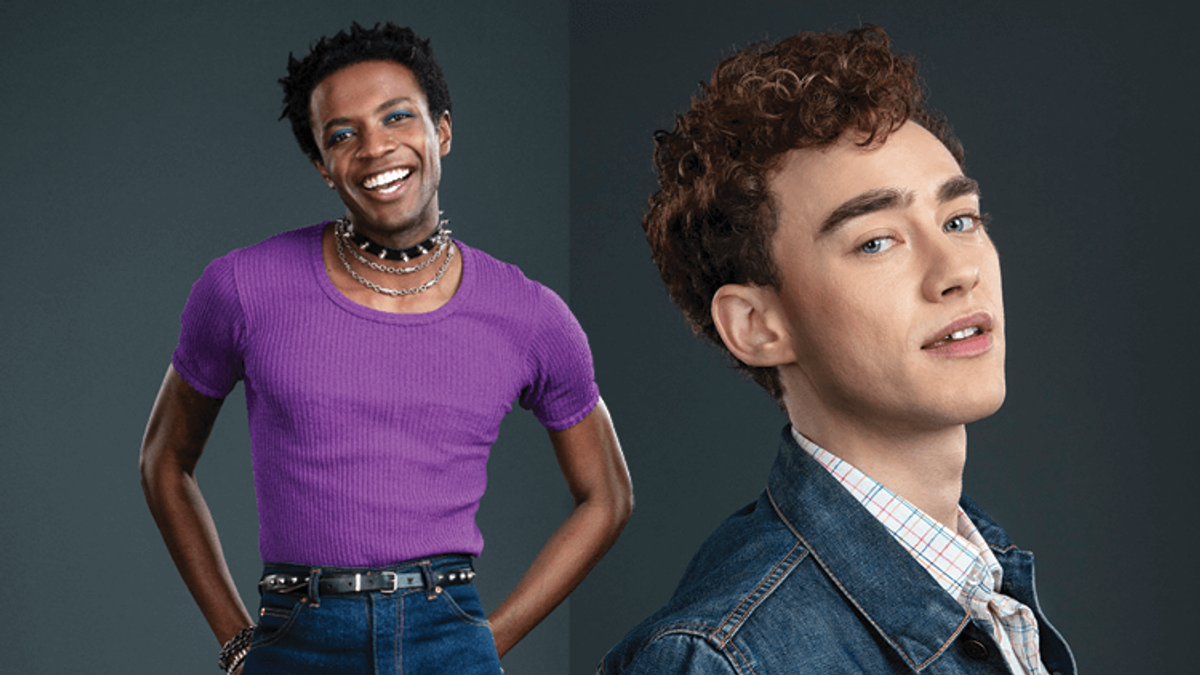



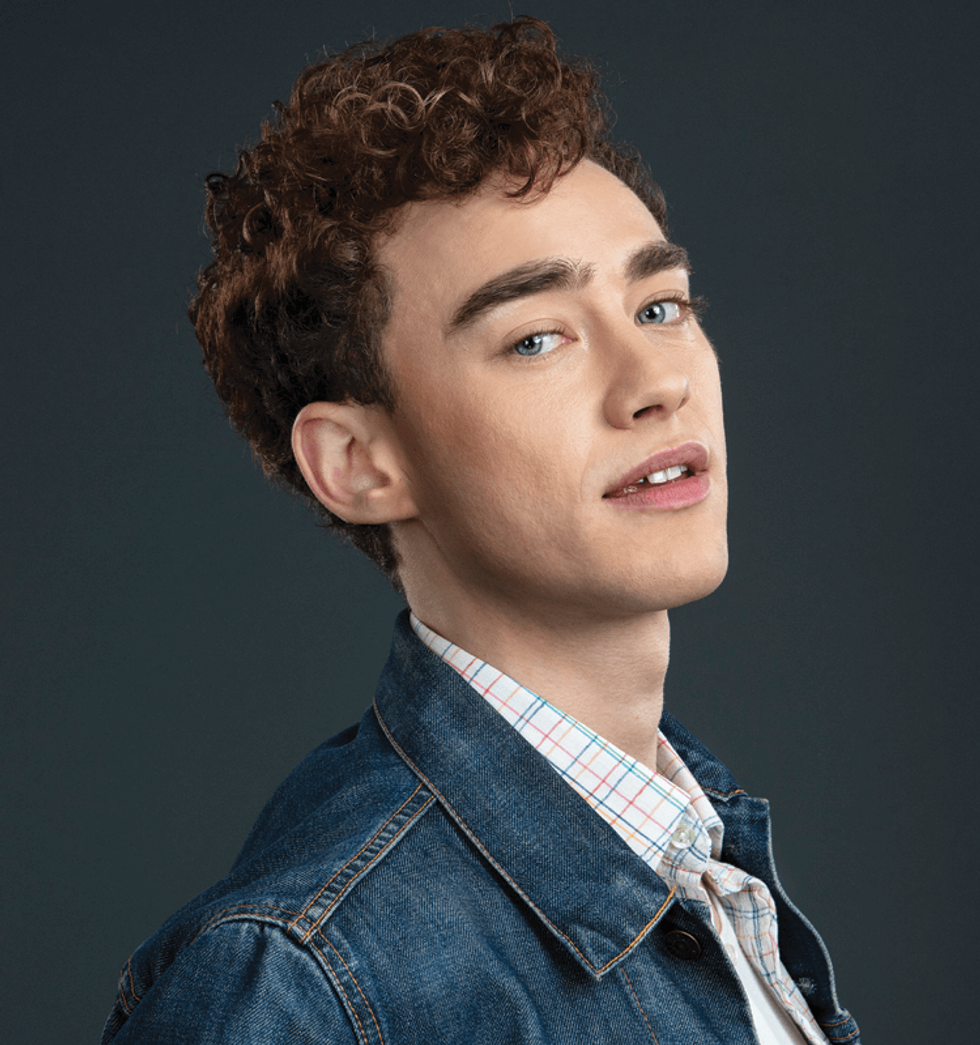
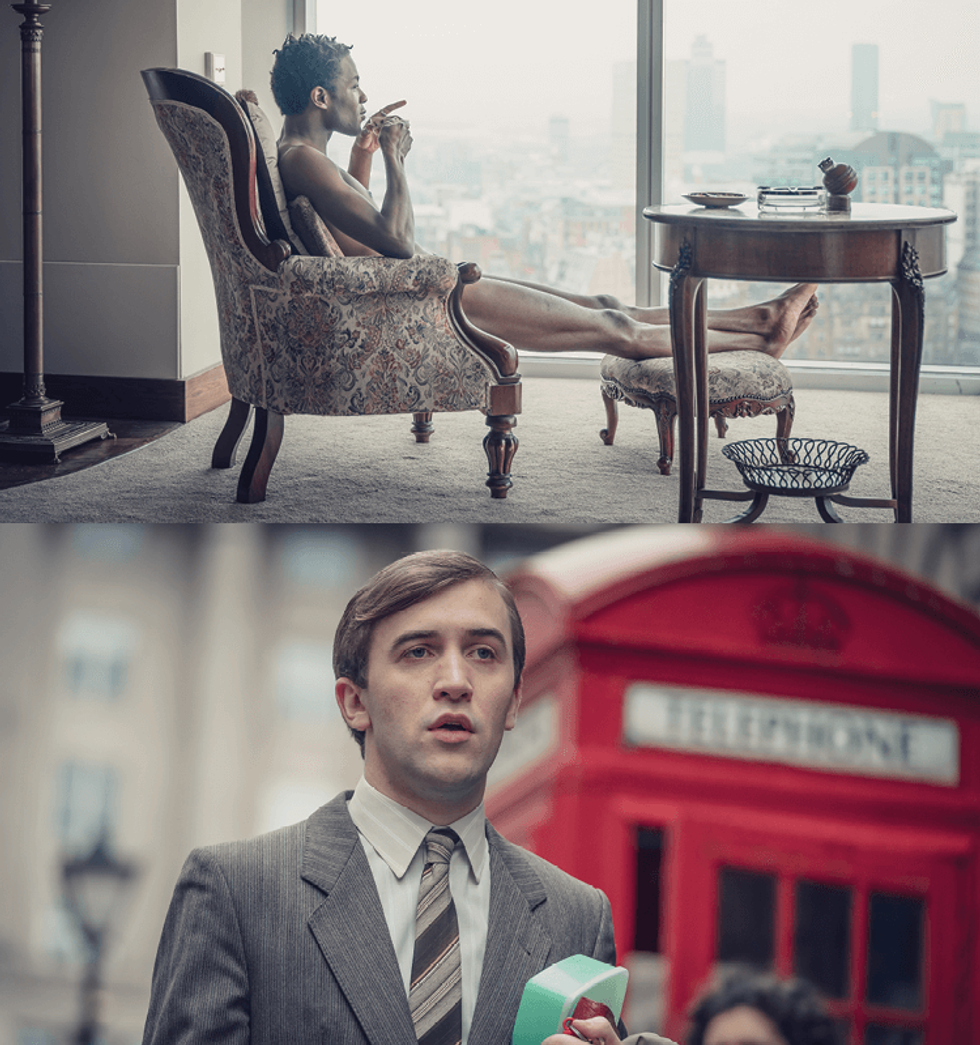
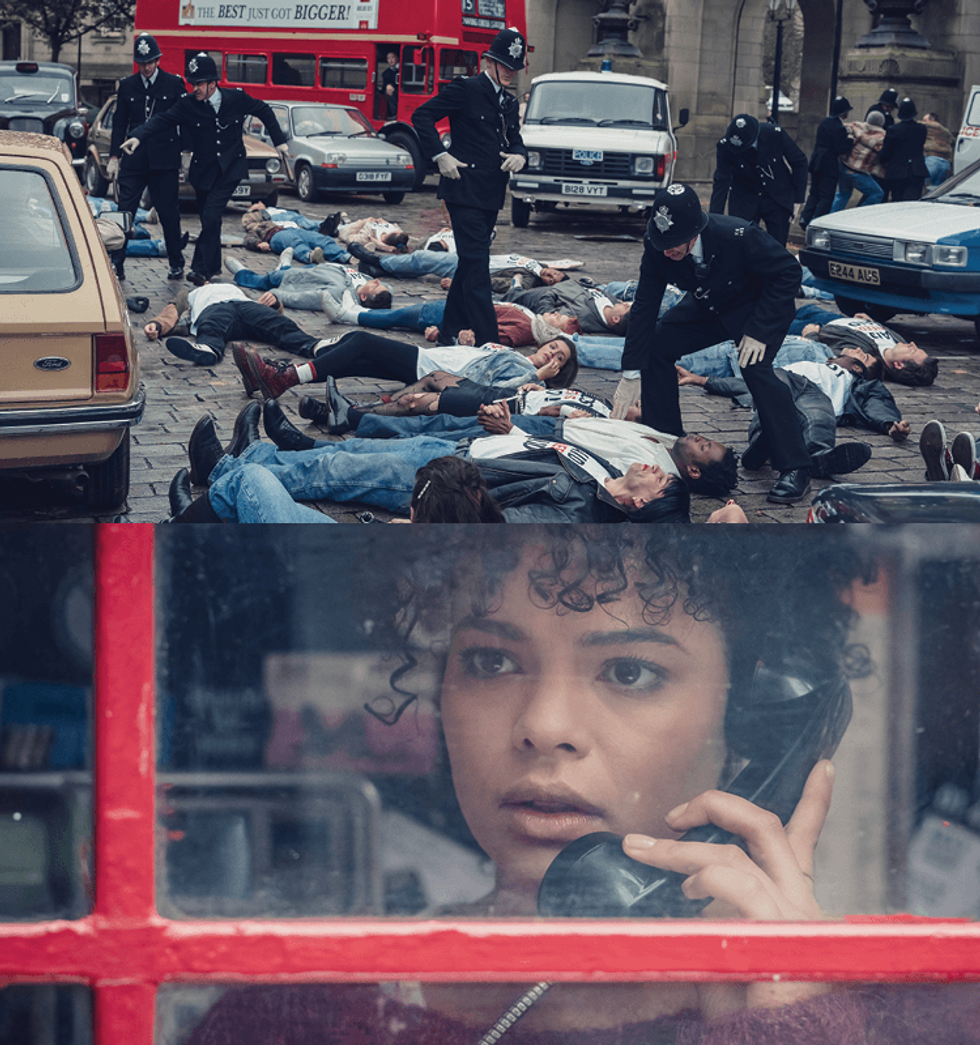
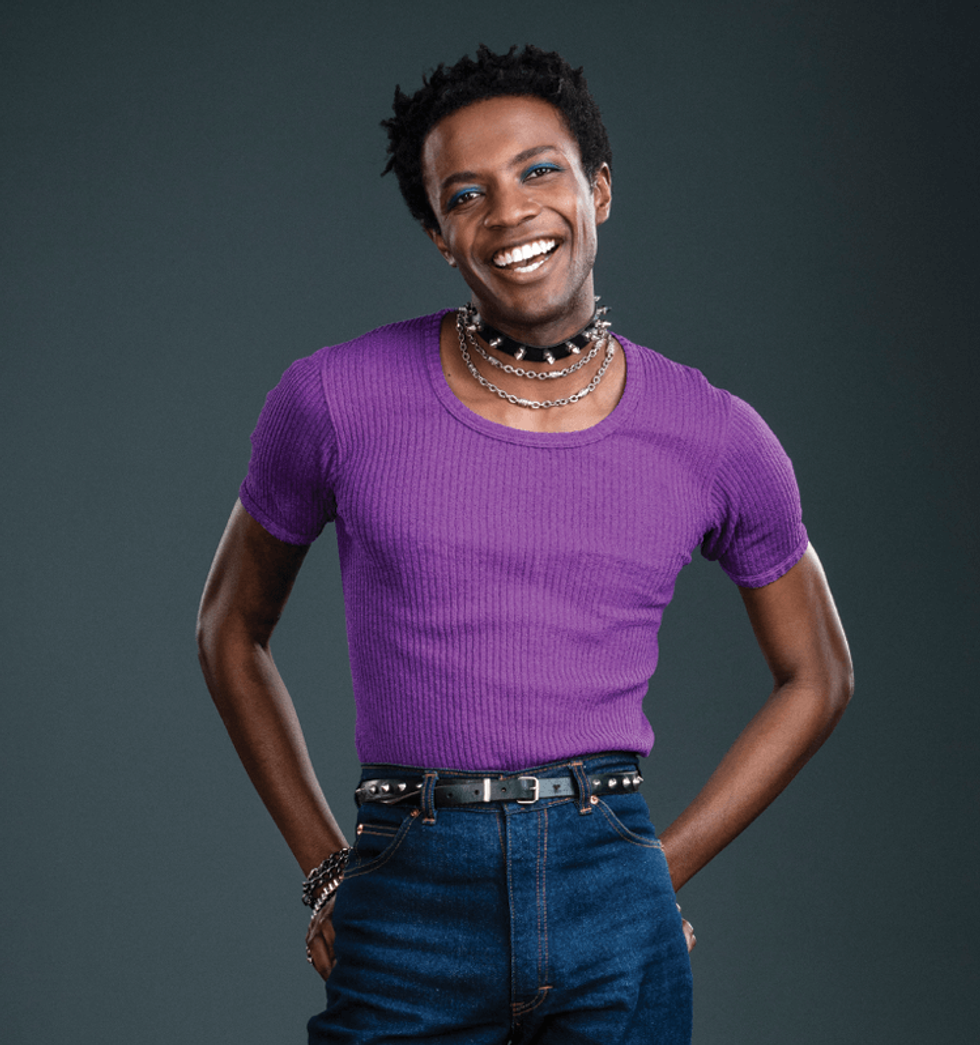
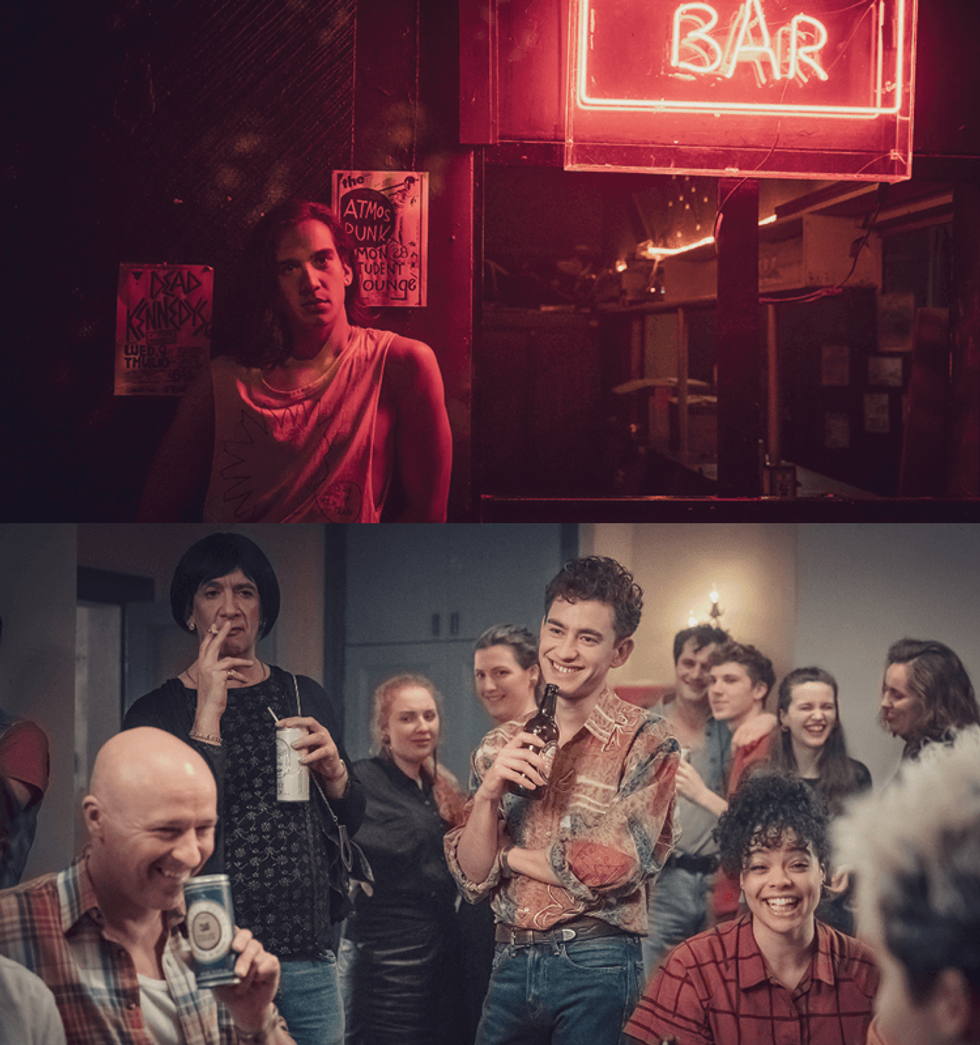
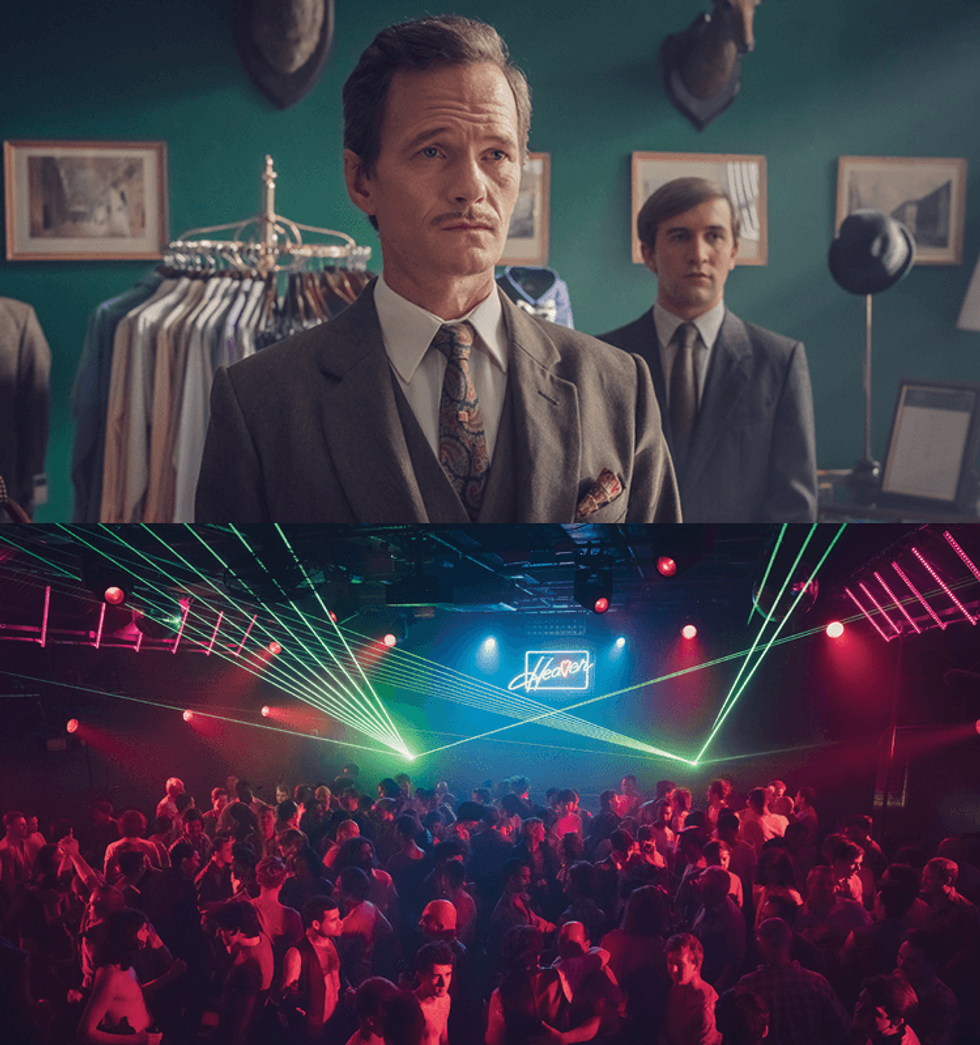


















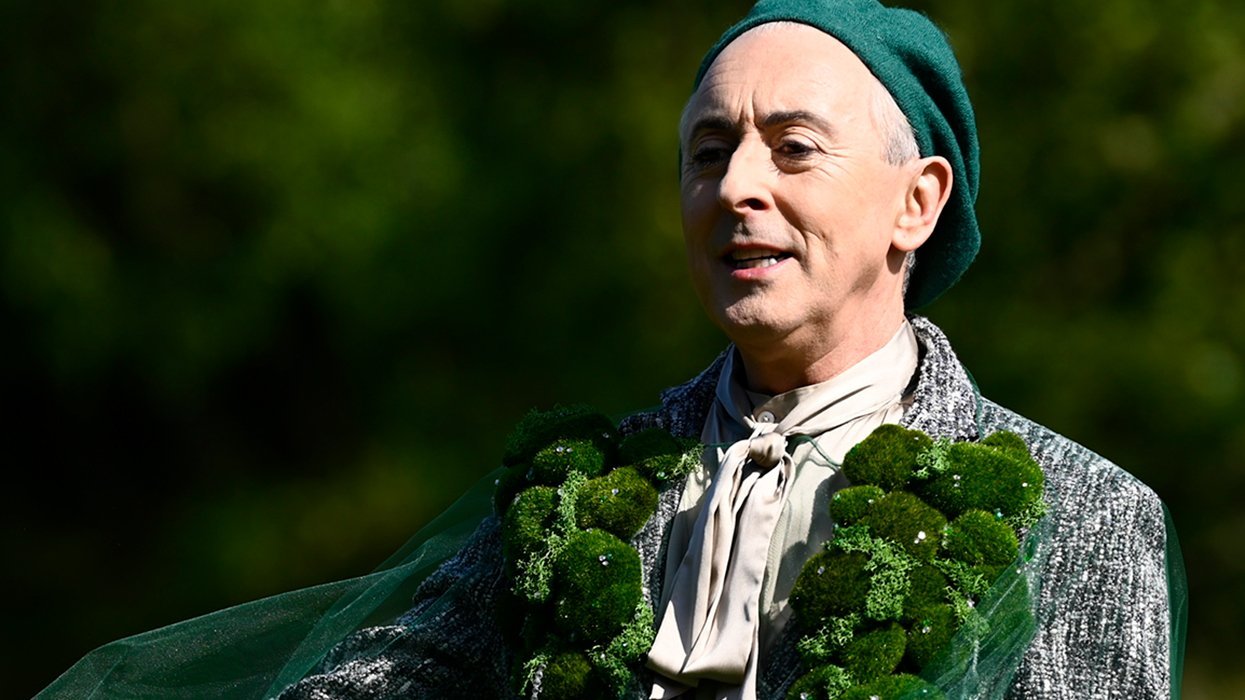
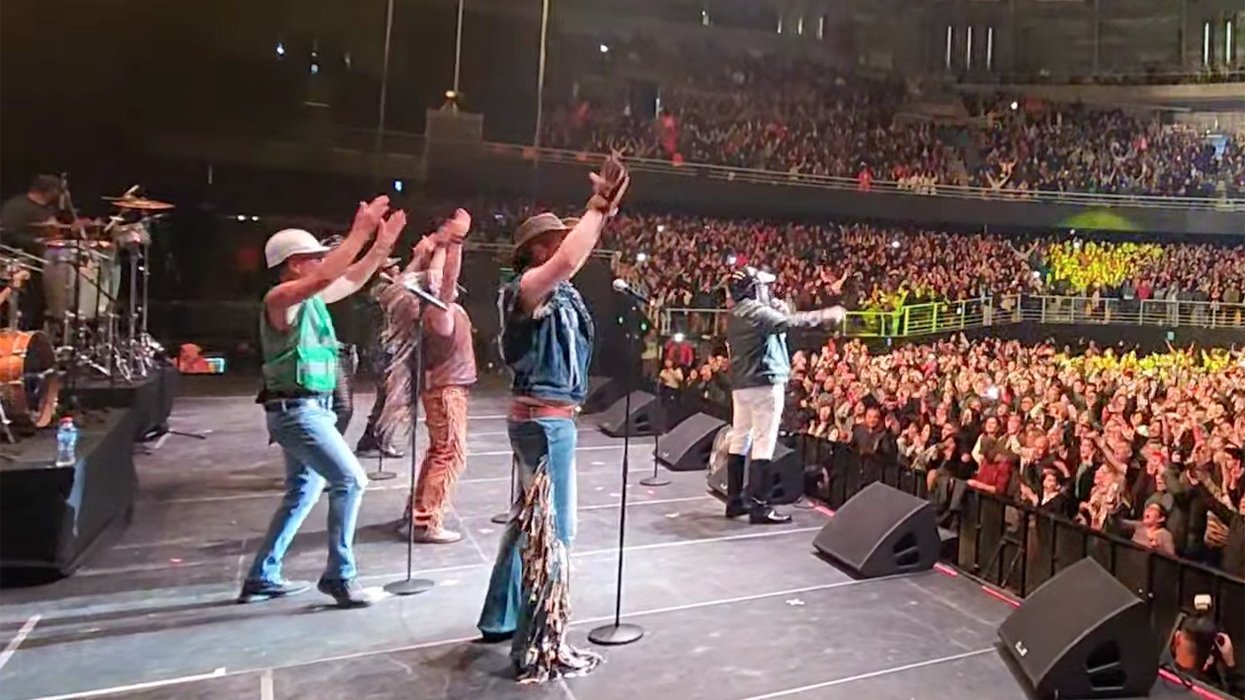
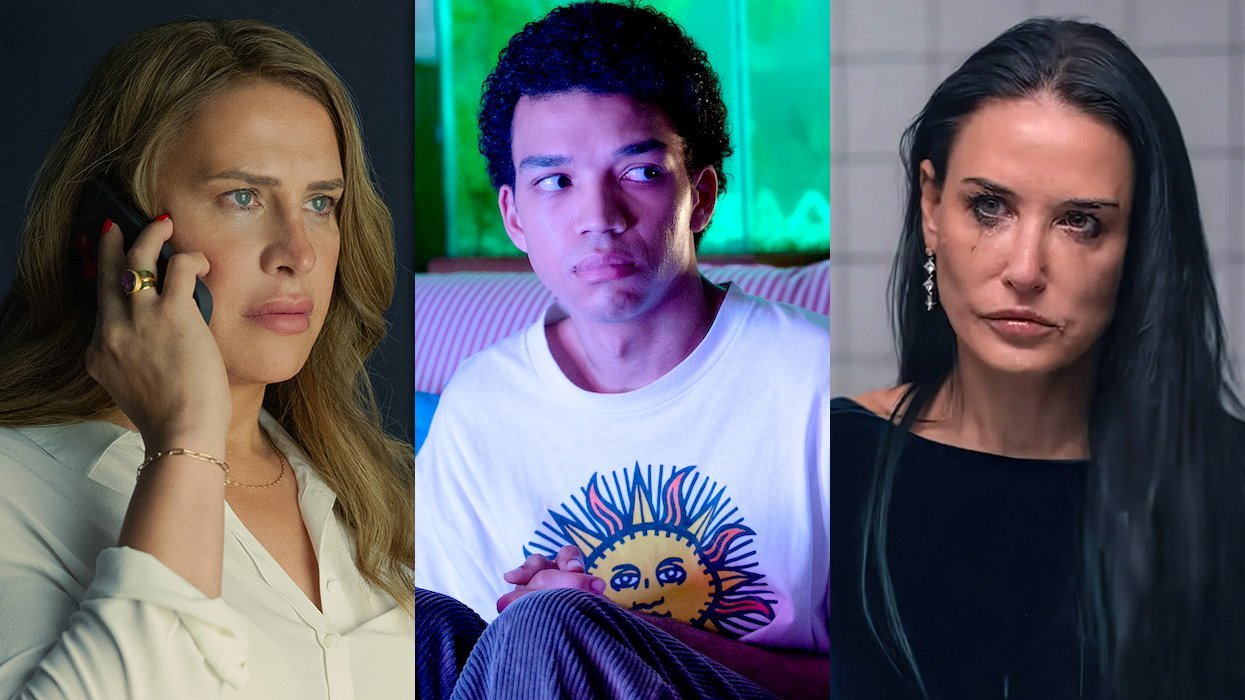
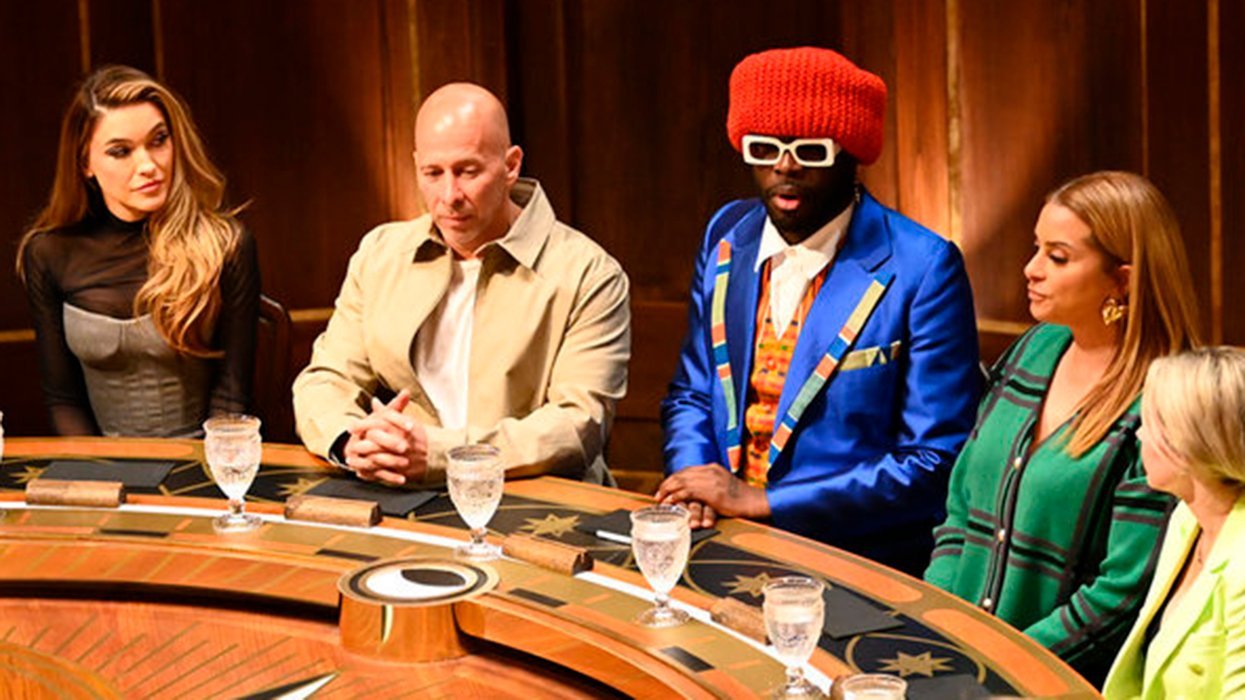
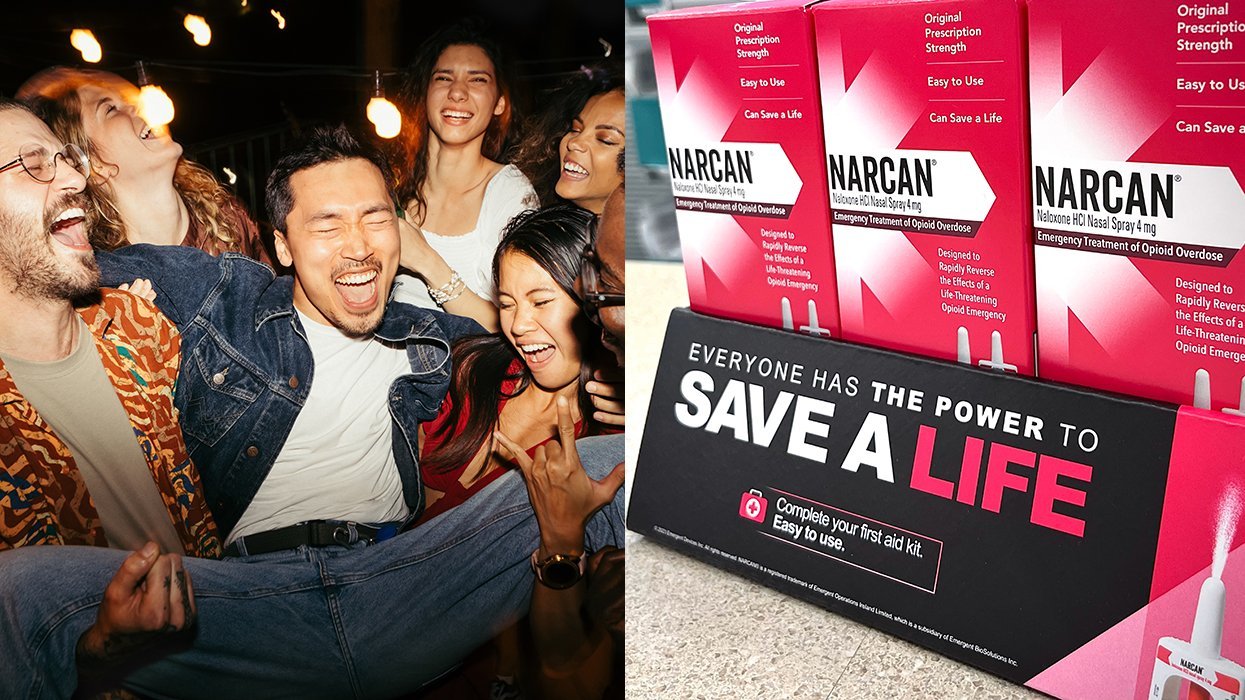
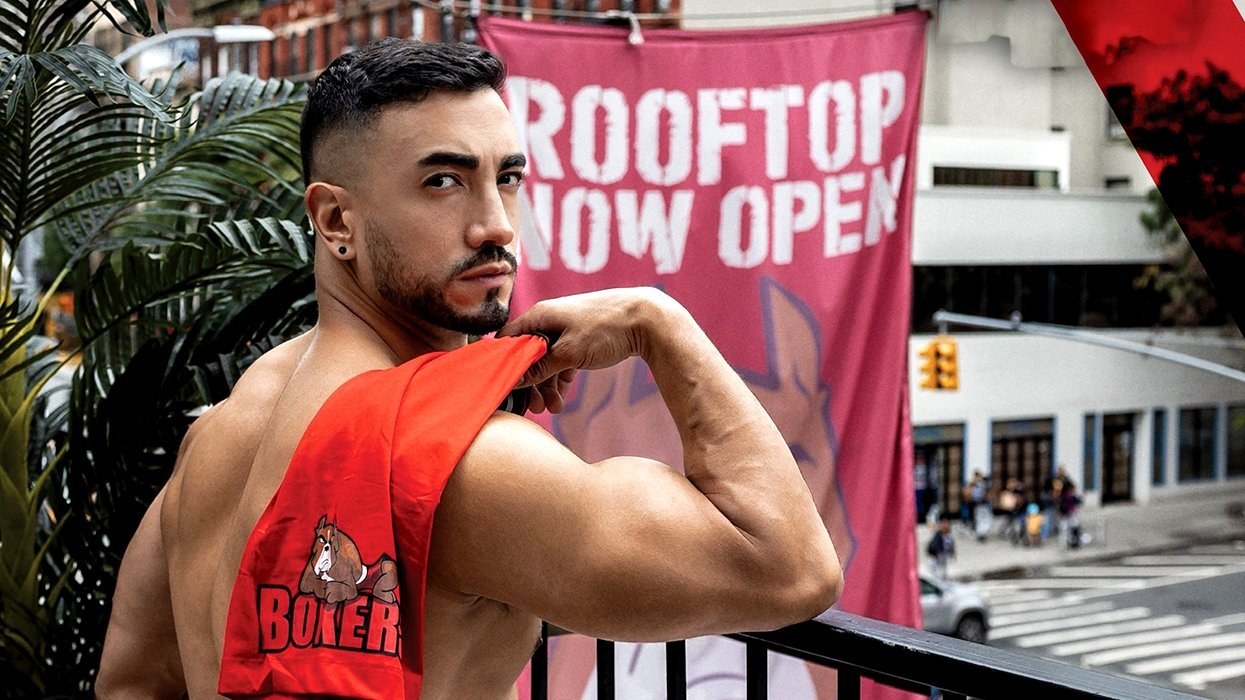
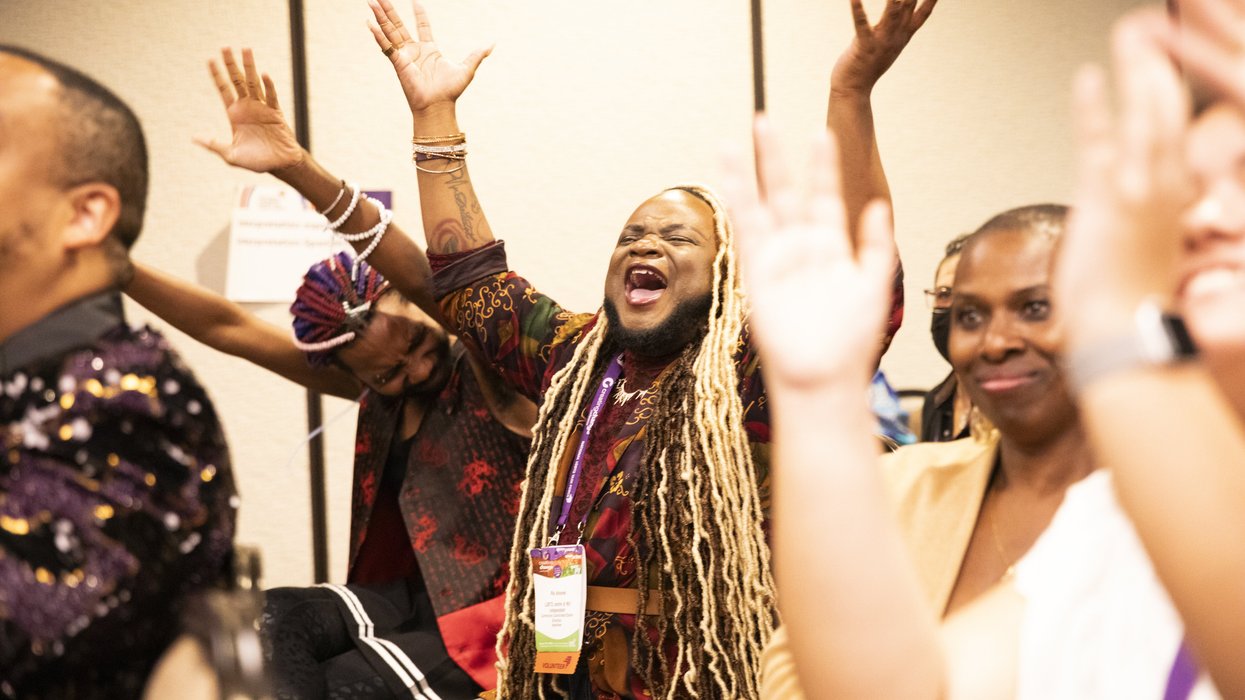
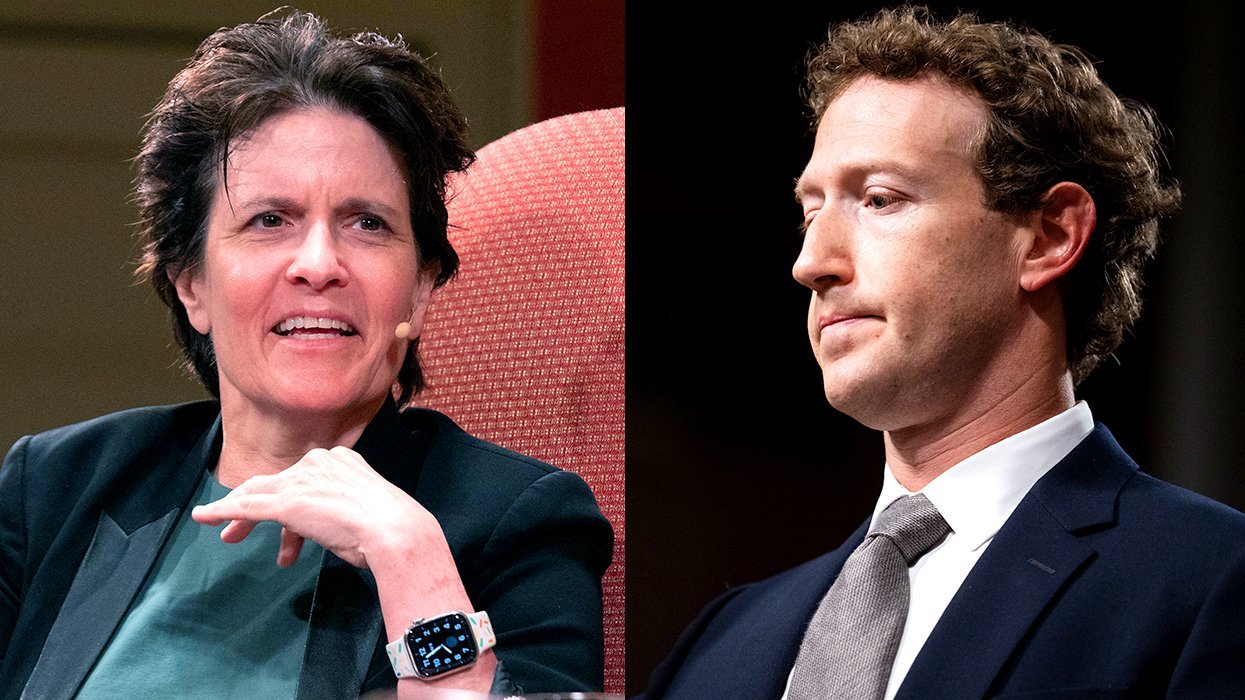
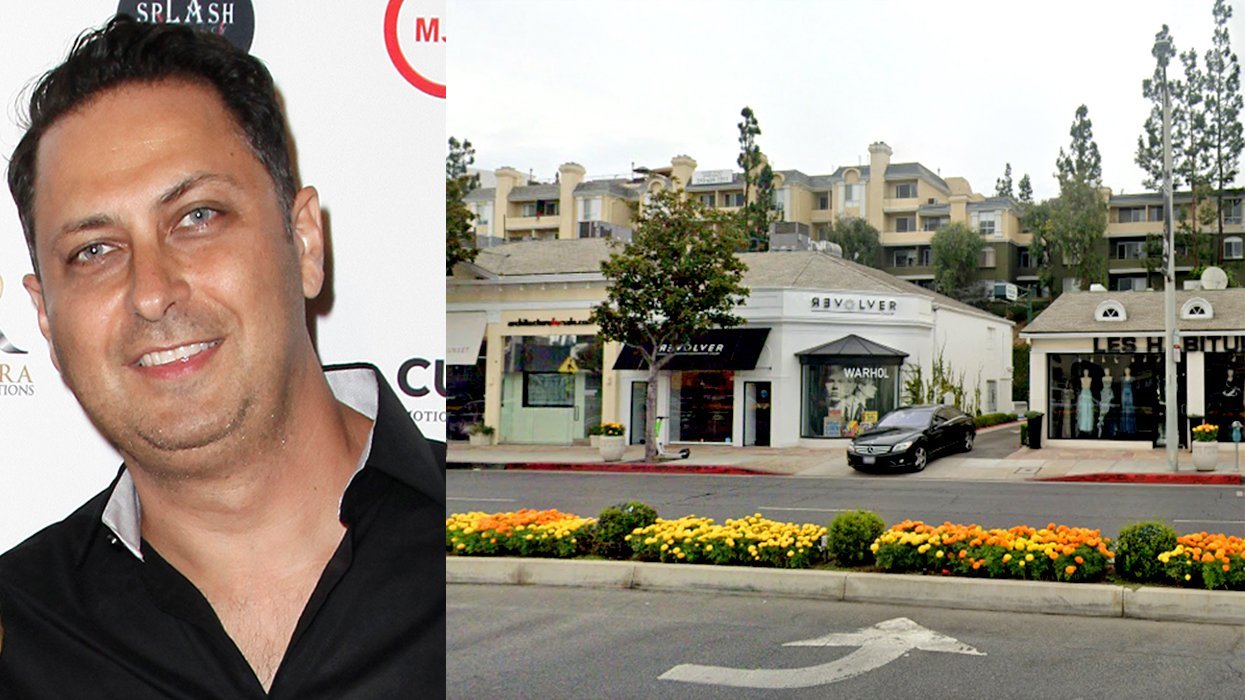
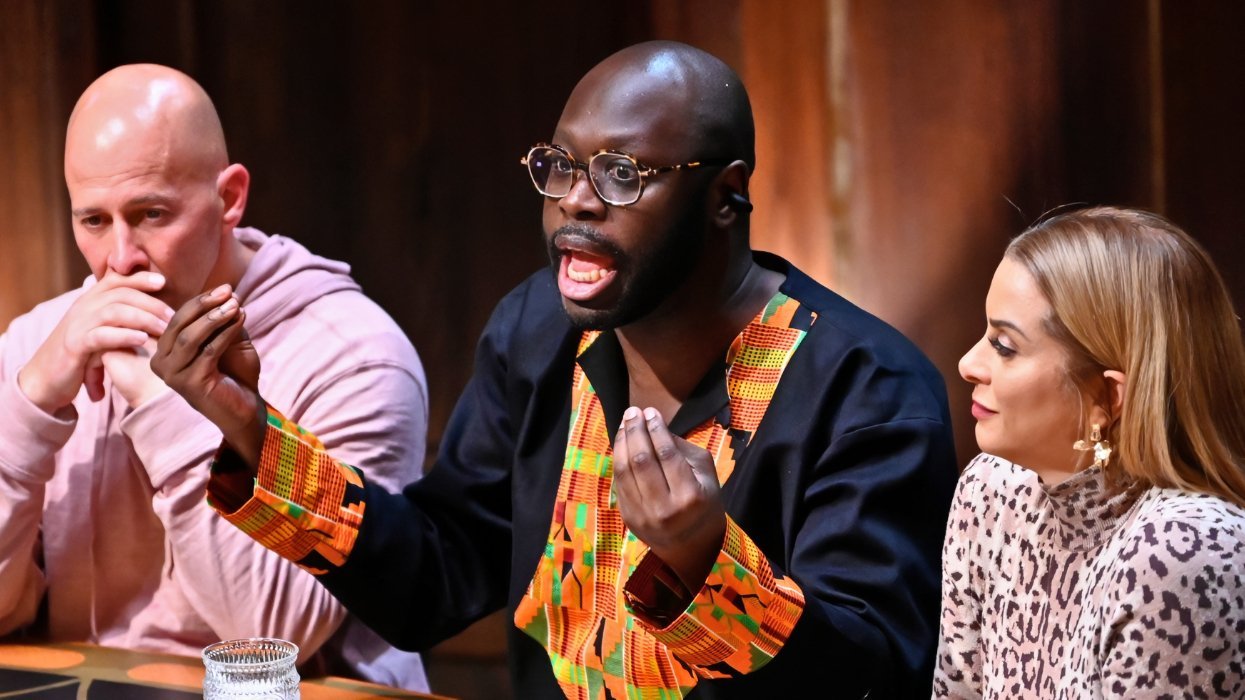





















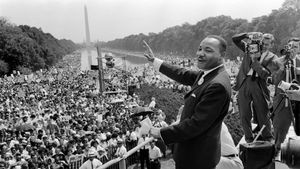






























Beware of the Straightors: 'The Traitors' bros vs. the women and gays